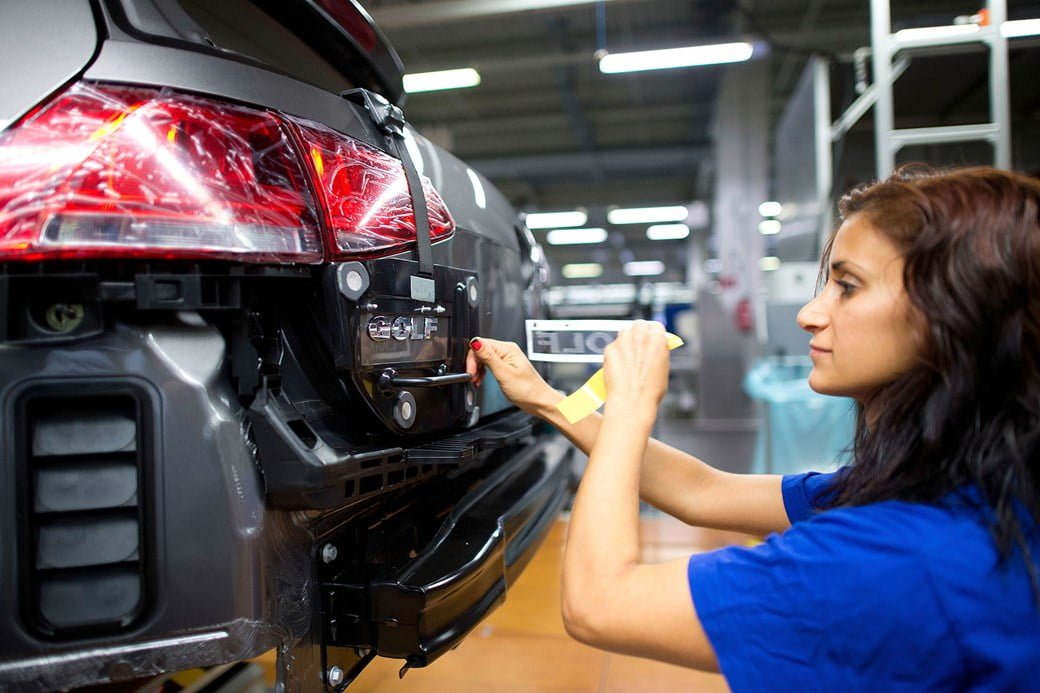Sales of Volkswagens have dipped by nearly 10% in October 2015, it emerged today as the UK’s new car sales figures were released. The Society of Motor Manufacturers and Traders (SMMT) said that VW sold 13,970 vehicles last month, down from 15,495 in the same month last year, as buyers stayed away in the confusion over #dieselgate. But in the first 10 months of 2015, the company remains nearly 7% up.
Earlier in November, Volkswagen became embroiled in a fresh raft of emissions ‘defeat device’ allegations, with the US Environmental Protection Agency alleging that 3.0-litre diesel engines in a variety of current VW, Audi and Porsche are fitted with software capping their nitrogen oxide (NOx) emissions during testing but allowing levels up to nine times greater during ordinary driving. What’s more, VW has also admitted it has uncovered ‘irregularities’ in how it has measured CO2 levels in around 800,000 VWs, Audis, Skodas and Seats in Europe, a development which could cost the company a further €2 billion (£1.4bn) to rectify. Click here for the full details.
It’s the latest chapter in a scandal that’s rocking the automotive world – read on for the #dieselgate scandal in its entirety, with continual updates as they happen.

EA288 EU5 and EU6 engines declared defeat device free
Volkswagen has issued a statement declaring EU5 and EU6 versions of the EA288 engine family free from ‘improper defeat device’ software ‘as defined in law’. This means that VW believes these engines, including those used by Audi, Seat and Skoda, comply with European legislation regarding emissions. However, VW has also confirmed that it is still investigating whether variants of these engines sold outside the European Union conform to other regional emissions requirements.
The EA288 engine family is an evolution of the older EA189 engine family at the centre of the VW ‘dieselgate’ emissions scandal. Work continues on technical solutions to vehicles affected by the controversy, and Volkswagen has reiterated that the necessary corrective measures will begin rolling out in January 2016 – though exact technical details remain unclear.
VW will now fast-track new clean tech
The former chief of Skoda, Winfried Vahland who was poised to run Volkswagen USA, has quit the VW group because of ‘differing views on the organisation of the new group region’ in a planned shake-up of how the car making giant is structured. It’s just one of a series of developments in the VW emissions scandal, as the company cuts €1 billion a year from its R&D budget.
German authorities have now ordered the car maker to recall 2.4 million cars to fix the defective software in affected cars, rather than do it in a voluntary fashion (as has been mooted in the UK). And, separately, Italian police have raided VW offices in Verona and Lamborghini HQ in Bologna searching for any evidence of commercial fraud, according to Italian media reports.
And it’s becoming clearer what effect the new austerity era in Wolfsburg will have: VW has pledged that the next-generation Phaeton will switch to become an electric limousine, it’s fast-tracking hyper-clean diesel technology and it will develop a new scalable electric architecture dubbed MEB to underpin a new generation of EVs with projected ranges of between 150-300 miles.
The VW emissions crisis in the UK
The UK boss of Volkswagen, Paul Willis (below), has been hauled in front of MPs and admitted that 400,000 British cars will need physical engine modifications to remedy the ‘defeat device’ emissions cheat software. The company has already warned that the fix won’t get underway until January 2016, and it could take another year before all cars are sorted.

Willis was called to appear in front of the transport select committee to explain how VW is planning to restore motorists’ faith in the company’s cars. He admitted that a third of cars affected in the UK would require a change to the fuel injection system – mostly the 1.6 TDI models sold since 2008. It’s a further blow to VW, and confirmation that it’s not just a simple software upgrade. Click here to find out if your Volkswagen is affected.
It has transpired that around 3 million of the 11m cars identified globally could require physical hardware upgrades, as well as a software reflash.
[“source-carmagazine”]





